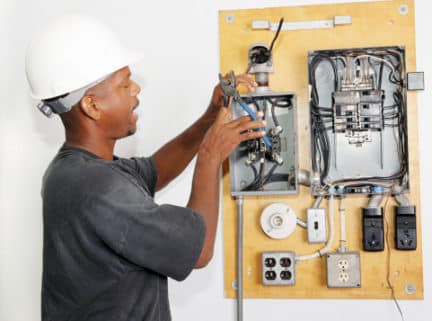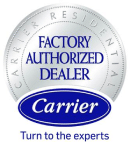Most homeowners consider surge protection a necessity with expensive electronics such as computers, stereos and televisions. With these items, they typically use a point–of–use surge protector that they can plug into an electrical outlet. However, most people do not realize that heating, ventilation and air conditioning equipment have sensitive electrical components that also need the same kind of protection.
A power surge is a short–lived spike, or a series of spikes, in electrical service voltage. Usually, a power surge lasts for only a fraction of a second; on the other hand, utility equipment failure can cause longer–lasting spikes that may last for sizeable fractions of a second or longer. No home is immune to electricity surges; therefore, all expensive appliances should have some surge protection. Since the HVAC system is one of the most important and expensive investments for a homeowner, it stands to reason that it should have adequate protection from power surges.
The most common natural cause of power surges is lightning. Characterized by an instantaneous spike in voltage for a short duration, it can cause substantial damage to structures, electrical equipment and appliances. The biggest factor about lightning is where it strikes; fortunately, the effects dissipate rapidly with distance, so it usually affects a few homes per strike. In addition to lightning, other common causes of power surges include:
· Downed power lines
· Household appliances cycling on and off
· Faulty wiring
· Damaged electrical components
· Power outages
· Power plant maintenance
Home Power Surge Protection
Even if home utilities such as air conditioners, furnaces, boilers, and water heaters do not suffer damage from a single electrical surge, repeated surges and spikes will wear down the equipment, thereby reducing the system’s efficiency and working life.
Surge protectors help to protect sensitive electronic equipment from power spikes by grounding the additional voltage. It is very likely that your surge protector could protect your home utilities multiple times without you even being aware of it. There are surge protectors that you can install at the point where the power enters your house, whole house protection, and point of use protectors that use power surge strips that appliances plug into.
For expert advice on HVAC maintenance and surge protection, get in touch with your local HVAC service technician.








